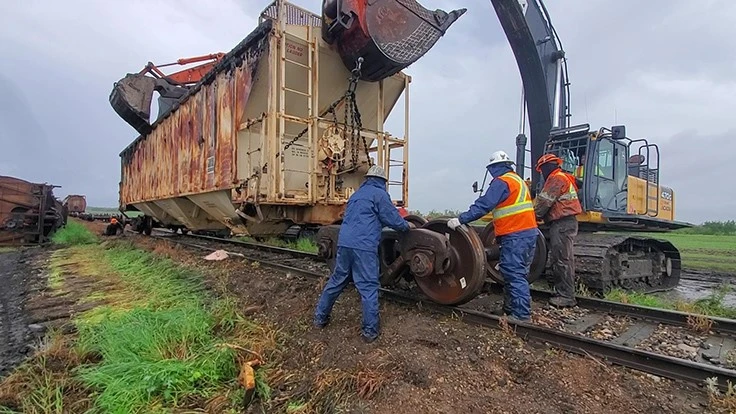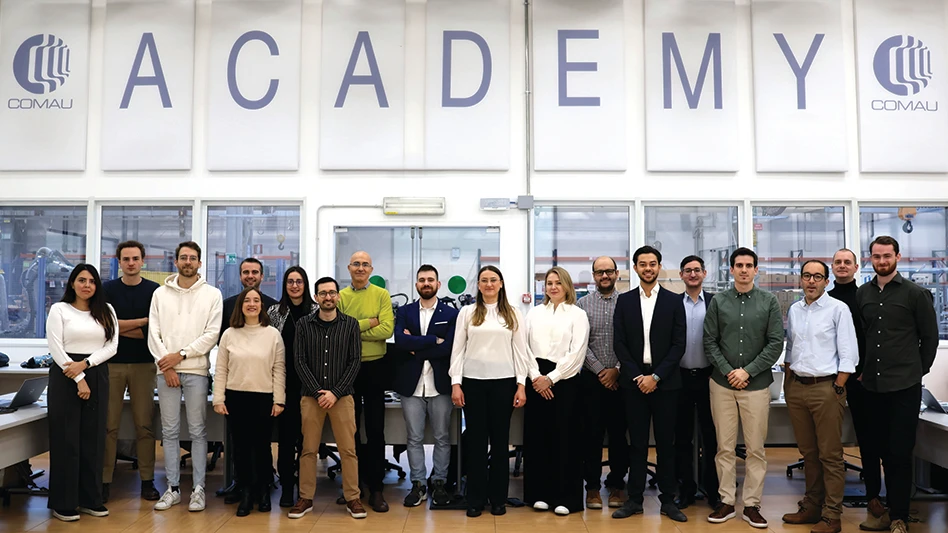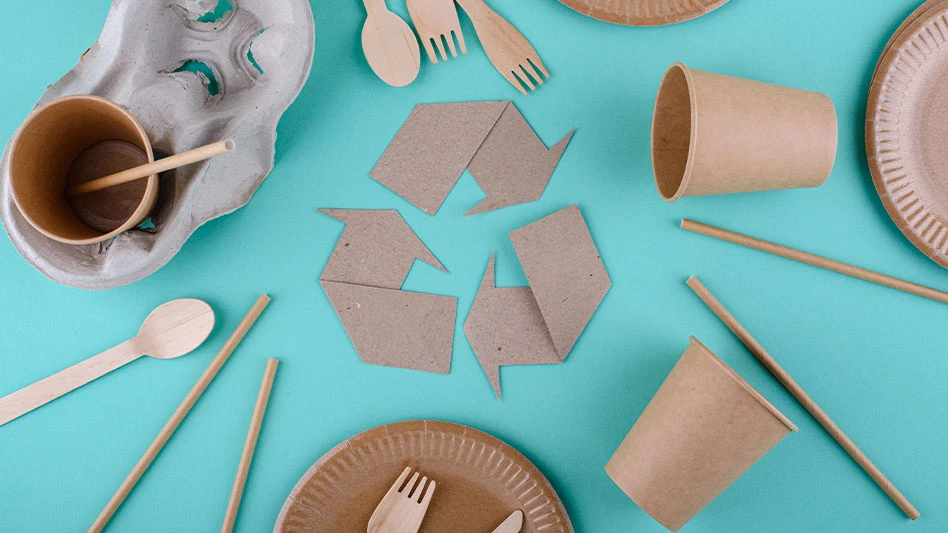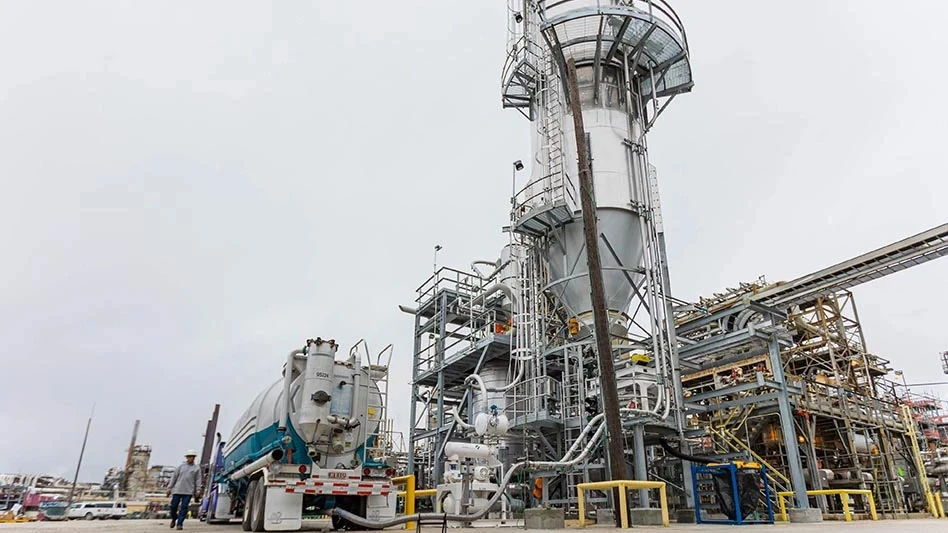
Photo courtesy of Standard Rail Corp.
Robert Skarzynski has spent more than 10 years as a participant and close observer of Canada’s freight rail industry. He possesses a work background that has convinced him recyclers and other shippers can benefit from methods he has devised to make the freight rail process go much more smoothly than it often does.
Skarzynski started his journey working for a short-line railroad in Canada and then moved into a role focused on freight train derailment cleanup. That process familiarized him with the ferrous scrap market and opened the door to conversations with scrap recyclers, many of whom expressed frustration with a frequent lack of gondola cars.
In 2017, Skarzynski decided the time was right to start his own business that offered railcar services designed to make things easier for scrap recyclers and other transportation companies who were having difficulties maintaining and managing their railcar fleets.
Headquartered in Saskatoon, Saskatchewan, Standard Rail now offers a variety of services with a common denominator “to save fleet managers time and money,” Skarzynski says.
One of the company’s services involves offering onsite repair of gondola cars. “This service saves two weeks to send a car to a repair facility; another two-to-three months or so for a car to wait in line and be repaired; and another two weeks to ship it back,” he says. “You’re basically losing that car for four months” using traditional methods, he contends.
While the situation often is referred to as a gondola car “shortage,” Skarzynski has found that cars are out there, but it can require legwork to track them down and re-enter them as viable cars in the freight rail network.
“Twenty years ago, railroads took ownership status, but that has shifted,” he says. “And today, scrap shippers are responsible for their railcars, keeping them in compliance, repairing any deficiencies, finding storage for idle cars or finding additional cars to support their operations.”
Scrap shippers don’t “need” to maintain their cars; the railroads will do that for them if they don’t, Skarzynski says. However, this reactive maintenance strategy is typically more expensive and can result in unreliable equipment, he says.
Standard Rail has identified a niche in assisting customers by monitoring the health of their railcars and helping them manage their maintenance, the entrepreneur says. Using technology, the company receives railcar health information from industry data and can use that to design a maintenance strategy that can reduce overall repair and maintenance expenses, and execute the repair operations on-site or through third-party shops.
Skarzynski says the scrap industry has proven the ideal beneficiary of his company’s services. Loading scrap into railcars can damage the cars, and this can lead to unexpected out-of-service time for the equipment. He strongly recommends scrap firms maintain their own railcar fleets and says Standard Rail can help keep those fleets maintained and available. By doing so, Skarzynski says, “They can save hundreds of thousands of dollars if they have, say, an 800-car fleet. Scrap companies understand their market, not necessarily the rail market.”
To recyclers who ship by rail, he says, “If you can get more done with the number of railcars you currently have with a better maintenance plan, and being more predictive, then there is no good reason not to do it. You can model it and have predictability. You can do more with the same number of cars.”
New York-based scrap trader and consultant Nathan Fruchter of Idoru Trading has begun recommending Standard Rail’s services to processors he knows. “Not having rail cars when you need them represents lost market opportunities,” Fruchter says. “For some of these companies, the rail cars are their bloodline. It’s even worse if you’re still paying the leased cars and you’re short of them and you can’t transport.”
A few years ago, Skarzynski would have said there were sufficient gondola cars (if a user could find them). As of 2022, there might be more of a railcar shortage than previously.
Ironically, he says, a booming ferrous scrap market earlier this year gets part of the blame. “Scrap pricing, when it was up, spurred considerable dismantling of rail cars,” he comments, estimating the figure could be “about 40,000 in North America.” Skarzynski adds, “We had some attrition this year.”
While his job may have become more difficult as a result, Skarzynski says he is making plans for Standard Rail to continue to grow beyond its roots in western Canada.
“Our goal is to have North America-wide coverage of service—like AAA is for passenger cars,” he says. The company already has entered the United States market in Florida, Georgia and other parts of the U.S Southeast, and Skarzynski says he knows it will take a bigger workforce to keep the momentum moving forward.
Additionally, he has opened a location focused on railcar logistics software development in Bangalore, India, and says both there and in North America, “We’ll definitely need to be hiring and growing as we are seeing strong demand for our services.”
Latest from Recycling Today
- Thyssenkrupp Steel announces site closure and job cuts
- Tennessee Tech receives $4.8M grant to improve EV battery recycling
- Don’t Trash Glass partners with glass suppliers in Colorado and Kentucky
- ICCA releases Plastic Additives Database
- EMR adds electric material handler to its Becker, Minnesota, operations
- Greenwave Technology pares back losses in Q3
- Lindner shredders prepare Brazilian plastic for recycling
- China ups steel output, while other nations cut back





